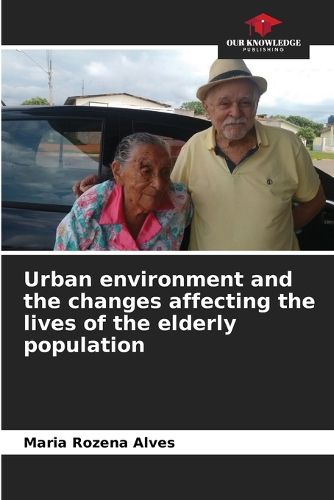Readings Newsletter
Become a Readings Member to make your shopping experience even easier.
Sign in or sign up for free!
You’re not far away from qualifying for FREE standard shipping within Australia
You’ve qualified for FREE standard shipping within Australia
The cart is loading…






The theme of this study is the urban environment and the changes affecting the lives of Brazil's elderly population in the 21st century. Based on this research topic, the general objective was established, which seeks to identify the changes in the urban environment and the implications for the lives of elderly people born at the beginning of this century. This population was part of the colonisation of the country. The main theoretical approaches highlight the emergence of cities, the rural exodus, the favelas in the states of Rio de Janeiro and Sao Paulo, the establishment of large metropolises, changes in environmental legislation, the emergence of laws aimed at defending and protecting the elderly and the transformations in the lives of the people who began colonisation. They were labelled as elderly. That's why they lacked space in the lives of their families, in the cities, on the streets and in the squares. The environment they knew no longer exists. As for the methodology, bibliographical research was carried out by reading books, researching websites, related literature, compendiums, magazines and newspapers.
$9.00 standard shipping within Australia
FREE standard shipping within Australia for orders over $100.00
Express & International shipping calculated at checkout
The theme of this study is the urban environment and the changes affecting the lives of Brazil's elderly population in the 21st century. Based on this research topic, the general objective was established, which seeks to identify the changes in the urban environment and the implications for the lives of elderly people born at the beginning of this century. This population was part of the colonisation of the country. The main theoretical approaches highlight the emergence of cities, the rural exodus, the favelas in the states of Rio de Janeiro and Sao Paulo, the establishment of large metropolises, changes in environmental legislation, the emergence of laws aimed at defending and protecting the elderly and the transformations in the lives of the people who began colonisation. They were labelled as elderly. That's why they lacked space in the lives of their families, in the cities, on the streets and in the squares. The environment they knew no longer exists. As for the methodology, bibliographical research was carried out by reading books, researching websites, related literature, compendiums, magazines and newspapers.